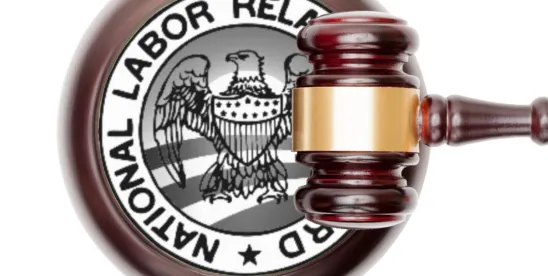As the mainstream media has reported, President Trump is firing everyone he can (and maybe some he can’t) at the National Labor Relations Board. On day one, the president fired the NLRB’s general counsel, Jennifer Abruzzo, a former union lawyer who President Biden appointed in July 2021. Abruzzo had been known for her aggressive agency-directive “memos” sending the NLRB into uncharted territory in favor of employee and union rights. These memos covered a multitude of topics, including expansion of NLRB remedies, prohibition of employer-led workplace meetings, outlawing noncompete agreements, deeming student-athletes employees under the labor law, recommending aggressive use of preliminary injunctive relief, and many others. We previously blogged about many of the Abruzzo initiatives here. With Abruzzo’s discharge, and the appointment of new Acting General Counsel William Cowen, most of these extreme memos from Abruzzo’s term have gone away. So, the shift back to a more employer-friendly NLRB is underway.
Out with the Old . . .
On February 14, 2025, Cowen issued Memorandum 25-05. This memo states very succinctly:
“Over the past few years, our dedicated and talented staff have worked diligently to process an ever-increasing workload. Notwithstanding these efforts, we have seen our backlog of cases grow to the point where it is no longer sustainable. The unfortunate truth is that if we attempt to accomplish everything, we risk accomplishing nothing.”
With this stated justification, Cowen “determined that the following actions are warranted.” Among the Abruzzo memos rescinded are (and these are just a few of them):
- Statutory Rights of Players at Academic Institutions (Student-Athletes) Under the National Labor Relations Act
- Electronic Monitoring and Algorithmic Management of Employees Interfering with the Exercise of Section 7 Rights
- Non-Compete Agreements that Violate the National Labor Relations Act
- Remedying the Harmful Effects of Non-Compete and “Stay-or-Pay” Provisions that Violate the National Labor Relations Act
- Securing Full Remedies for All Victims of Unlawful Conduct
- Ensuring Settlement Agreements Adequately Address the Public Rights at Issue in the Underlying Unfair Labor Practice Allegations
- Section 10(j) Injunctive Relief
- Guidance on the Propriety of Mail Ballot Elections
- The Right to Refrain from Captive Audience and Other Mandatory Meetings
- Ensuring Rights and Remedies for Immigrant Workers Under the NLRA
- Goals for Initial Unfair Labor Practice Investigations
Undoubtedly, the new NLRB will address several other labor-relations issues. However, some of these other issues are not governed by general counsel memos; they are governed by NLRB decisions themselves. For example, the new card-check union recognition procedure and the ban on employer-led workplace meetings will have to be addressed in legal cases separately from these memo rescissions.
The New to Be Determined . . .
We will have to stay tuned for these developments. As of now, the NLRB basically is non-functional because of a shortage of confirmed members. Bringing the NLRB back to full operating status could take a year or more.





 />i
/>i
